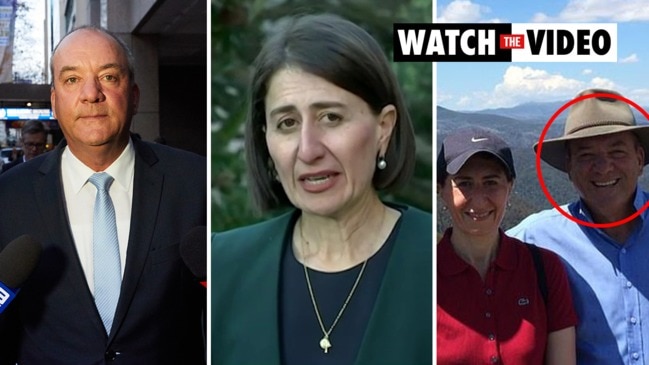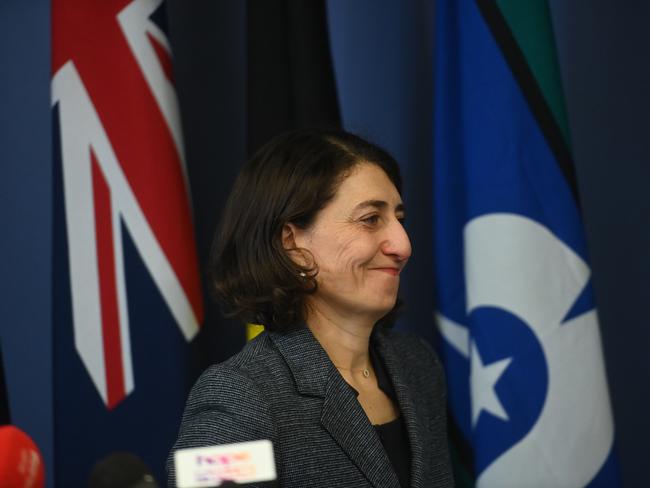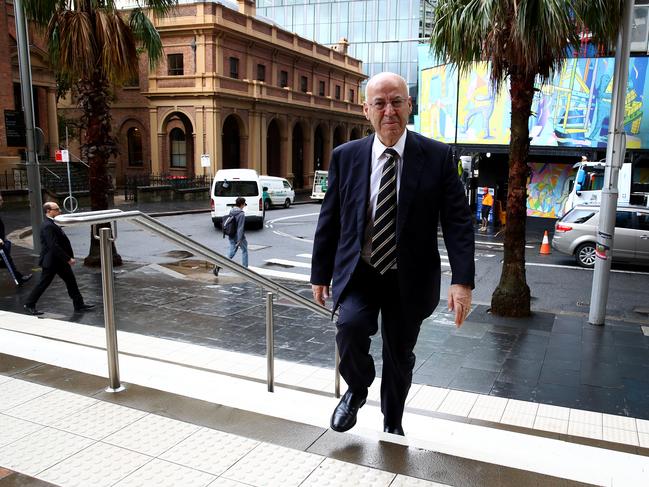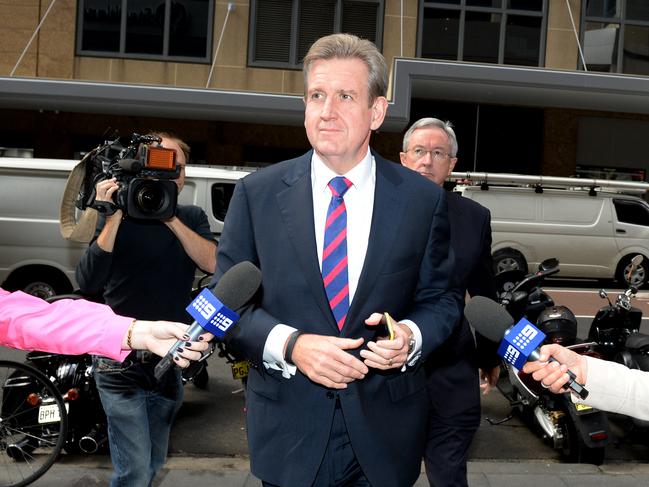Why did ICAC choose to investigate Berejiklian in the middle of Covid crisis?
A corruption investigation into Gladys Berejiklian’s conduct could have waited until next year, writes James Campbell.

James Campbell
Don't miss out on the headlines from James Campbell. Followed categories will be added to My News.
It only took hours for federal Labor MPs to start using Gladys Berejiklian’s fall as an excuse to start banging the drum over the need for a federal ICAC. But if anything, the way that state’s anti-corruption body has ended the career of its third premier ought to make the country pause before rushing into copying the NSW model.
That Berejiklian was in the middle of managing the greatest peacetime crisis to have struck this country since the Great Depression you would have thought merited holding back on launching public hearings this month. The lack of proportion is stunning.
Even if Berejiklian smiled upon the grants to the Australian Clay Target Association and Riverina Conservatorium of Music because she was stepping out with the local MP, who the hell cares?

REVEALED: The contenders to become NSW’s new Premier
TRANSCRIPT: Read Gladys Berejiklian’s resignation statement
COMMENT: Crushing end as Gladys’s worst fear comes true
OPINION: Readers have their say on Berejiklian’s resignation
CLENNELL:Gladys needs look in mirror over downfall
That’s not corruption as most of us understand the term. There is no allegation that she received material benefit from the grants. It isn’t as though the issues in question are new, either. We’ve known for a year she had an off-and-on again thing with Daryl McGuire who was clearly a wrong ’un.
Seriously, couldn’t this have waited until next year when life is back to something resembling normal? Now imagine an equivalent body in Canberra with the same commonsense as that with which the ICAC appears to have been blessed.
They’d probably see nothing wrong with announcing a probe into the Prime Minister’s role in a bunch of station carpark grants the week the People’s Liberation Army landed in Townsville.
It’s easy to joke but there’s nothing funny about the way the ICAC has abused its power here.
If only this were a one-off.
But as the Margaret Cunneen affair showed, a lack of proportion has been a hallmark of ICAC for years. This was the 18-month saga that saw the Crown Prosecutor pursued by ICAC after she was caught on a phone intercept making a joke about her son’s girlfriend’s boob job.
Despite the High Court ruling that the ICAC had exceeded its authority based on a misinterpretation of the meaning of corrupt conduct, it referred Cunneen to the DPP who had to refer the matter to a senior prosecutor in Victoria, who found there was no case to answer. Bizarrely, ICAC’s Commissioner Megan Latham actually had the temerity to complain about a lack of procedural fairness after the inspector charged with overseeing the body issued a scathing report into its behaviour in the Cunneen case.

It is easy to miss amid all the breathless reporting of the ICAC’s doings over the years that until it struck with Eddie Obeid, the anti-corruption body had a very modest list of achievements. When it was created back in 1988 by the newly elected Greiner government the need for it must have seemed self-evident. In the previous decade, a NSW prisons minister had been jailed for taking bribes in return for the early release of prisoners and the state’s chief magistrate had been sent down for perverting the course of justice. But have a look at the ICAC’s greatest hits in its three decades of operation and prepare to be underwhelmed.
There was a probe into “the use of TAFE funds to pay for work on a dog kennel complex” and “an attempt to obtain entry to a selective public high school through payment of money” as well its triumphant investigation into “tendering for vinyl floor products” at the Department of Administrative Services. There have also been a lot of probes into dodgy goings-on at councils and contractors and prisons but until you get to the Obeid era it’s small beer, ombudsman-level.
Now it is true Eddie was a shocker, the worst example of corruption we have seen in Australia since the Bjelke-Petersen government in Queensland or WA Inc. But while the Obeid scandals can be used as Exhibit A for why ICACs are vital to have all the time and everywhere, you could also hold them up as an example of how little they can achieve. Because one of the points of integrity commissions is they’re meant to prevent or deter people from acting corruptly as well as catching them after the fact.

Now, of course, you can’t catalogue a list of crimes that weren’t committed because crooks were deterred by the existence of ICAC and most people would admit that public life in NSW is cleaner than it was 30 years ago.
But still, it is a fact that the whole time Obeid was operating, the ICAC was in existence. Or more importantly whether the money that has been spent on it and the draconian powers it has exercised have been proportionate to the conduct it has been investigating.
Barry O’Farrell lost his job because he couldn’t remember being given a bottle of wine – a very good bottle of wine it has to be said – which in retrospect seems an absurd over-reaction at a time when we could afford to worry about such things. Now Gladys Berejiklian has gone over a couple of regional grants at a time when things are really serious.
Thank goodness we don’t have an ICAC in Canberra.
More Coverage
Originally published as Why did ICAC choose to investigate Berejiklian in the middle of Covid crisis?





